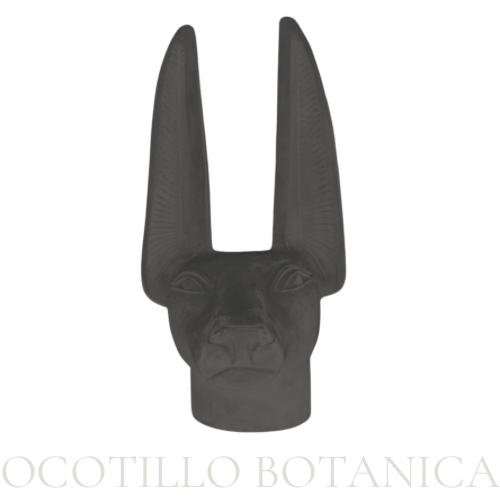
The Apis Bull
Share
The Apis Bull, revered in the ancient Egyptian city of Memphis, was a sacred symbol of immense religious significance. Regarded as an intermediary between humans and the gods, especially the god Ptah, the Apis Bull played a central role in the spiritual and cultural practices of ancient Egypt. This veneration underscores the Egyptians' profound belief in the divine nature of certain animals and their close connection to their deities.
Chosen from the herds of Memphis, the Apis Bull was identified by specific physical markings, notably a distinctive white triangle on its forehead and various other white patterns on its body. These unique features were essential in selecting the bull, believed to be imbued with divine qualities. Once an Apis Bull was identified, it was removed from ordinary life and placed in a state of luxury befitting its sacred status.
The Apis Bull resided in a specially designated temple, where it lived a life of comfort and reverence. Priests attended to its needs, ensuring it was well-fed and cared for, while devotees worshipped it, seeking blessings and divine favor. The temple not only served as a sanctuary for the bull but also as a focal point for religious ceremonies and rituals dedicated to the god Ptah and other deities associated with the Apis Bull.
Symbolizing strength, fertility, and the divine presence on Earth, the Apis Bull was more than a mere animal; it was a living embodiment of the gods. This belief was so strong that upon the death of an Apis Bull, it was accorded elaborate burial rituals akin to those of the pharaohs. The process involved mummification and entombment in the Serapeum, a necropolis specifically designated for the Apis Bulls. This practice highlighted the Egyptians' reverence for the Apis Bull and their desire to honor it in death as they did in life.
The death of an Apis Bull did not signify an end but a continuation of a sacred tradition. After the burial, a new Apis Bull was sought with the same rigorous selection process, ensuring the perpetual presence of the divine intermediary. This continuous cycle reinforced the link between the divine and mortal realms, maintaining the spiritual balance and harmony that were central to Egyptian religious beliefs.
The veneration of the Apis Bull exemplifies the deep connection ancient Egyptians had with their gods and the sacred animals that represented them. Through the Apis Bull, they expressed their devotion, sought divine guidance, and celebrated the presence of the gods in their daily lives. This enduring tradition reflects the richness of Egyptian religious practices and their intricate understanding of the sacred, bridging the temporal and the eternal.
Shop Apis Bull Artifacts
As my body of knowledge grows, information may be added to or redacted from these articles so that they may serve as a living library.



